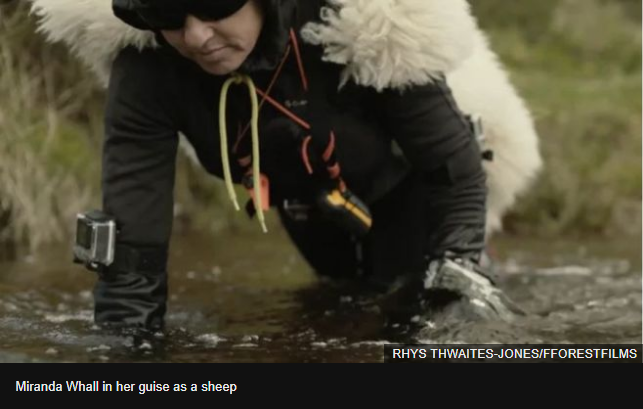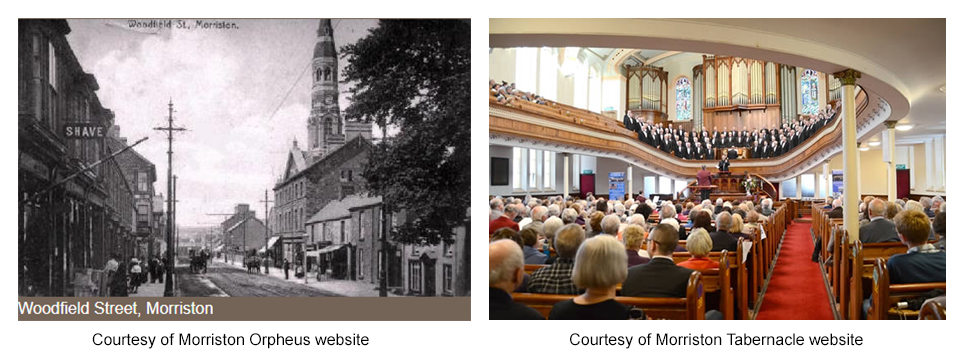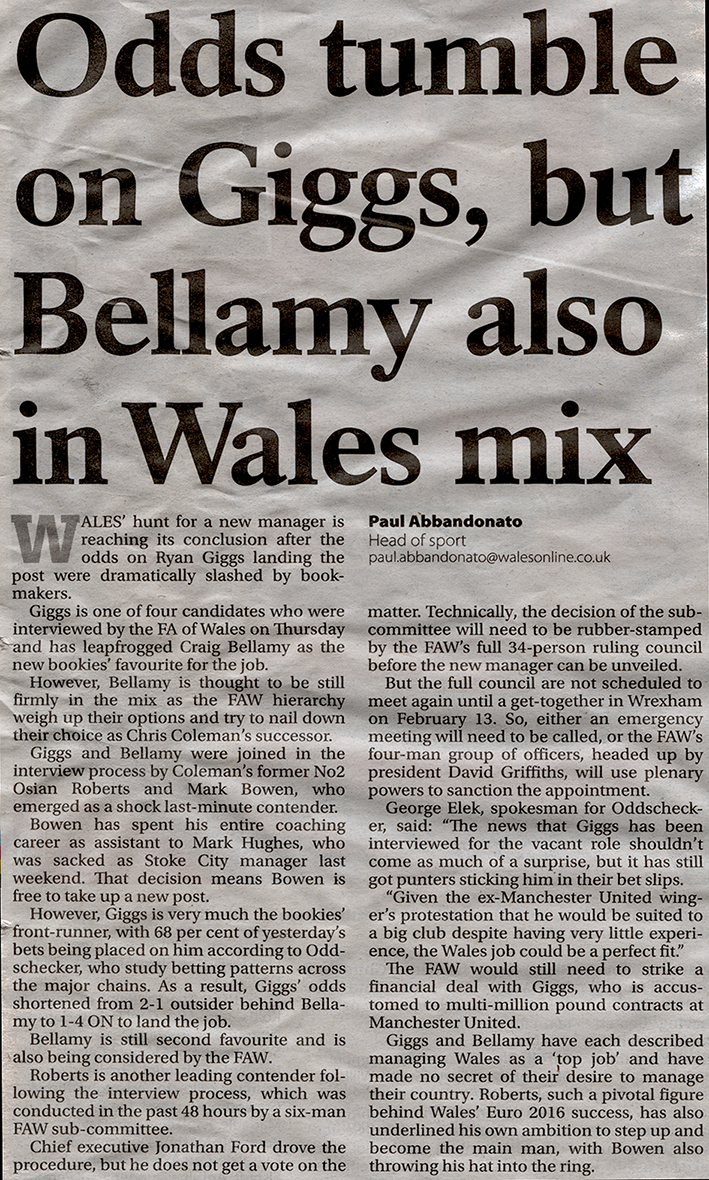TALES WITH A TWIST
The documents listed below were recently received from North Wales Police in response to my complaint last year about the leaflet Tales With a Twist. I’m afraid that apart from the covering letter they were in a font size so minuscule that I needed a magnifying glass to read them. I have enlarged them to make it easier for you.
The different RM numbers will make sense as you read on.
Just before last year’s council elections we were entertained with election leaflets distributed in Gwynedd urging people not to vote for Plaid Cymru; which might have been OK had they carried imprints identifying the publisher and the printer. As they carried neither they were unlawful.
What’s more, the attack on Plaid Cymru slipped into ridiculing the Welsh language and, some thought, outright racism. The leaflet even hinted at electoral fraud being committed by “council officials and high ranking Plaid Cymru councillors”.
The leaflet I’m referring to was called Tales With a Twist No 6, and I wrote about it first in Dirty, Dirty Politics and followed that up with Dirty, Dirty Politics 2. You can read it for yourself by clicking on the image beneath.
The leaflet was being distributed in Trawsfynydd on April 28th by Independent councillor Louise Hughes of Llangelynin ward. Though I’m 99% sure that she neither wrote nor printed the leaflets. I say that because they were quite well written and they were certainly professionally printed.

I made complaints to the Electoral Commission and North Wales Police.
The response from the Electoral Commission was a gem of the ‘Don’t bother us’ kind. I’d complained about Tales With a Twist bearing no imprints and the EC responded with, “It appears that the material (leaflet) you provided does not contain an appropriate imprint. However, it is not clear who has produced and distributed the leaflet”.
Er, no, that’s why I referred it you. That’s why I told you who was distributing it. The person who was distributing it could have told you who produced and printed the leaflet. The Electoral Commission was clearly a dead-end.
Perhaps I’d have more luck with North Wales Police.
Not really. You’ll know that things got off to a bad start when you read in the documents to which I’ve linked, “The website/Blog has been written by Royston Jones who is not politically neutral in this matter and is believed to be a member/supporter of Plaid Cymru.”
Well, laff!!
As you’ll see this revelation appears on the incident sheet RM17019233. Which also tells us, against ‘Place of offence’: “Anson Court, Atlantic Wharf, #Plaid Cymru Ground Floor, Butetown, Cardiff UK CF10 4AL (Plaid Cymru)”.
It soon became clear that Plaid Cymru had also made a complaint and somehow the local gendarmerie had confused or conflated my complaint with the complaint received from that party.
This is admitted at the foot of the document with, “Having reviewed this occurrence and the linked occurrence RM17019233 I can see that they are one and the same. . . both complaints having been received as a direct result of the letter generated by Mr Royston JONES, his letters and online blogs). Master occurrence RM17013288 will remain open until such time as the investigation is complete.”
So let’s turn to RM17013288.
You’ll note that this incident sheet is peppered with statements like: “difficulty in getting the informant (me) to engage” and “Mr Jones is not fully assisting police (refusing to divulge his sources on MG3) – reducing his credibility as a witness.”
Let me make it absolutely clear that I was always ready to ‘engage’. For God’s sake it was me who took Tales With a Twist to the police. As for not ‘divulging sources’; if people tell me things in confidence and are unwilling to deal with the police then I accept that, and so should the police.
After all:
- I had given the police a copy of the leaflet.
- I had told the police who was distributing the leaflet.
- I had told the police where and when the leaflet was distributed.
- I had explained the way(s) in which the leaflet fell foul of electoral law.
- The police had spoken with Councillor Louise Hughes who admitted distributing the leaflet.
- She could, if pressed, have told the police the name of the publisher and the printer.
- As a result of this information a conviction or convictions could have been secured.
Instead, North Wales Police chose to believe that Louise Hughes had both printed and distributed the leaflets, they gave her a warning, and ignored entirely the matter of who published them.
I’m sure NWP would excuse themselves by saying that with neither the Electoral Commission nor the Crown Prosecution Service interested in proceeding with the case there was little else they could do. But it was the police themselves who decided that the Public Order Act had not been contravened by a leaflet that clearly sought to stir up hatred against the Welsh language and its speakers.
Perhaps trying to impress the police with her contrition Louise Hughes told them that, “training was now being arranged for all councillors to ensure no literature (from any political party) was distributed incorrectly in the future”.
I checked with some Gwynedd councillors on whether, in light of Tales With a Twist, special training had been arranged to explain to councillors what they should already know. The answer I got was that nothing was arranged beyond the regular “code of conduct course”.
Louise Hughes, who initially aligned herself with Llais Gwynedd before realising that their opposition to Plaid Cymru came from the ‘other side’ has since fallen in with a small group of anti-Welsh bigots who try to dress up their hatred for all things Welsh, especially the language, by pretending they’re attacking Plaid Cymru.
It doesn’t fool me. It shouldn’t fool anybody else.
◊
JAC THREATENED WITH LEGAL ACTION
On April 19th I received a tweet from a Rob Melen asking for my e-mail address. Nothing unusual in that, it happens all the time. I gave him my e-mail address.
Within hours I received an e-mail from Melen saying:
“It has come to my attention that you have used my image of mine of the inside of a Castle Bingo showing fixed odds betting machines. I do not have any record of having issued you with a licence to use this image. I would be grateful if you would provide me with any evidence that you have been issued with a licence by myself for such use.
Subject to that, as it appears that you have breached my copyright I require you to provide me with information about where you sourced the image, the length of time that you have used the image, and any other usages that you may have made of that, or any other image that you may have reason to believe may be mine.
Unless you have a licence from me I require you to remove the image immediately, and will be requiring payment for use of the image to date. If you would like to make use of the image for the future, any such future use would only be permitted subject to negotiation with me of a separate additional licence and payment of a licence fee at my rates.”
This referred to a big piece I wrote last September, scroll down and you’ll come to a section about Carolyn Harris The English Labour Party in Wales (hereinafter referred to on this blog as TELPiW) MP for Swansea East and her party’s association with Castle Bingo.
I responded with;
“I was rather surprised to receive your e-mail. After all, the image is attributed to you, which I’d assumed made it OK.
Anyway, as to where I got, all I can say is that it came from Googling the Internet.
It has now been removed. I suggest we leave it at that.”
But no, on Saturday I received another e-mail from Melen, this one quite threatening:
“Without Prejudice Save as to Costs
Further to your reply of 19th April 2018, I was extremely disappointed to see my image used in this way. This was a blatant breach of my copyright because the image was used without license from myself. It would have been easy for you to find out who the copyright owner is, and to publish it legally.
You ought to have known that the image would be protected by copyright, and use of my image in this way by you in the course of your business/blog would be a criminal offence under S.107(2A) of the Copyright Act 1988, punishable by up to two years in prison and/or a fine.
Unauthorised use of the image in this way devalues the value of the image for myself and my clients. Use on the internet, especially where unattributed, is especially damaging as it presents further opportunities to third parties to infringe my images, and increases the risk that the image may become ‘orphaned’.
If I have to take this matter further, I may be entitled to claim damages not only for the direct losses caused by your infringement, such as my loss of license fee, but also for one or more of the following:
- I am entitled by law to additional damages where the breach is flagrant or where you have gained a benefit from using the image.
- I may elect to require an account of profits from your use of the image, and may require you to carry out disclosure of the full amount of profits derived from use of my image. This may include my claiming a share in the total profits from the sale of any edition in which my image appeared.
- I am entitled to further damages for failure to credit my image to me: for breach of statutory duty under S.103 of the Copyright, Designs and Patents Act.
- I may be entitled to additional damages for ‘moral prejudice’ under S.3(2)(a)(ii), The Intellectual Property (Enforcement, etc) Regulations 2006.
- I may be entitled to claim from you any additional losses caused to me which results from your breach, for example if my image becomes ‘orphaned’ due to your actions.
- If I have to take this claim further, the costs of lawyers’ fees, court fees, and other expenses will also be added to the cost of the claim.
The foregoing list is not exhaustive, and I reserve my right to claim for additional heads of damage. I would strongly urge you to consult a solicitor in relation to this claim if I go ahead with it.
In the interests of resolving this matter quickly for both of us I am, at this stage, willing to make a without prejudice offer to waive my rights to damages from you with respect to your breach for a payment of £150, provided that you accept this offer in writing within the next [7] days and provided that such sum is received on my account within the next [14] days.
This offer applies with respect only to your breach of copyright and usage of my image as described in my letter to you of 19th April 2018, and does not in any way imply waiver or consent regarding any additional usage or use of any other image or any breach by any other person. This offer is made on condition that you have disclosed all material facts to me in relation to your breach of my copyright.
This offer applies to settlement of your breach of copyright for this image until the date of expiry of the offer, and assumes that you remove the offending copy of the image forthwith (which you have done). No consent to future or continuing use of the image is implied in the foregoing offer. Should you wish to continue use of the image, then that would be subject to separate negotiation and agreement.
Should I not receive notification of acceptance of this offer within the period described above I shall pass the matter to be dealt with by my solicitors and/or debt collection agents, and additional costs will be incurred which I shall recover from you.
Yours sincerely/faithfully”
He wants a share of my profits from his photo! Does he think Jac o’ the North is part of Rupert Murdoch’s empire? I think you’ll agree that Rob Melen’s response to me for using a photo of gaming machines that appeared in a WalesOnline article is a bit OTT.
The picture was in the public domain. Yes, I used it, but his name was clearly visible. There was no attempt to claim it as my own or deny him ownership. (As for the millions I made from it, well, they’re safe in my offshore accounts.)
So why the over-reaction? Come to that, who is Rob Melen? Both questions can be answered by telling you that Rob Melen is the senior photographer for that rabidly pro-Labour rag the Evening Post of Swansea. Currently losing readers faster than any other newspaper in Wales. Here’s his Linkedin profile.

Another non-coincidence, I suspect, is that the article in which I used the image last September was about Carolyn Harris who is now, thanks to the union block vote, the deputy leader of TELPiW. The blog post that was current when Melen got in touch also contained a section on Harris. Fancy that!
And into the mix you can throw the many references I’ve made to Carolyn Harris over the “dyke shoes” assault, and the vindictive pursuit of the victim who will stand trial in Newport in June charged with theft.
On top of which I have many times criticised the Labour Party. In fact, I detest every last one of the verminous bastards that keep my homeland poor and my people subjugated.
So let’s put it all together: A photographer contacts me for using an image of his that appeared in an online newspaper. Guilty, but his name was clearly visible. And the picture? Well, it was a picture of a room full of gaming machines; it was never going to win a competition . . . even a competition for a picture showing a room full of gaming machines.
But someone saw the photo on this blog, and his name, and had a little word: ‘Listen, Rob, love, we’re gonna use you to get that bastard Jac o’ the North. Alright? Well, of course it’s alright innit – you want to keep your job, don’t you? There’s a good boy.’
Am I being unfair on Robert Melen? No, I think not. You see, his e-mails gave away the fact that they had been pasted from some other source. The shadow of the selected text was still visible in the e-mail.

Yes, I could understand the shadow if he was copying the legal bits, but both e-mails were pasted in their entirety, even the parts he was supposed to have written himself! It is unmistakeable. At the end of his second e-mail Melen didn’t even realise he was supposed to choose when confronted with “Yours sincerely/faithfully”.
I have not replied to Robert Melen’s second e-mail (or whoever wrote it). What do you think I should do? I’d like to hear in particular from the lawyers among you.
Drop me a line to editor@jacothenorth.net.
♦ end ♦
























































